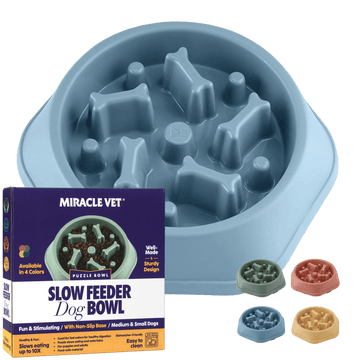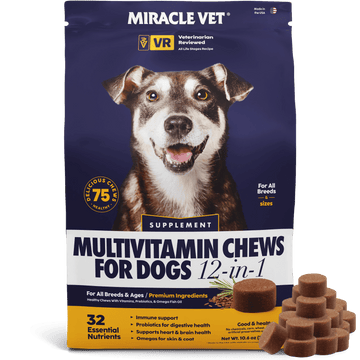When it comes to addressing skin allergies in dogs, it's important to look at the specific needs of your dog and speak with your veterinarian. However, here are some general recommendations for dog food that may help alleviate skin allergies:
- Limited Ingredient Diet (LID) formulas: LID dog foods less ingredients, these are much simpler foods made up of natural food sources and have little or no additives. This can help identify and eliminate potential allergens from your dog's diet. Look for formulas with novel protein sources (e.g., poultry, or salmon) and easily digestible carbohydrates.
- Grain-free or gluten-free options: Some dogs with skin allergies may be sensitive to grains or gluten. Opting for grain-free or gluten-free dog foods can be beneficial. However, when removing large food groups it is important to speak to your veterinarian before making this choice.
- Hydrolyzed protein diets: Hydrolyzed protein diets involve breaking down the protein into smaller molecules, making it less likely to trigger an allergic reaction. These diets are often used in cases of severe food allergies or intolerances and are available through prescription or veterinary diets.
- Omega-3 fatty acids:Dog foods that are rich in omega-3 fatty acids can help improve skin health and reduce inflammation associated with allergies. Look for dog foods that include fish oil, flaxseed, or other sources of omega-3s.
- Avoiding common allergens: Some common allergens for dogs include beef, chicken, dairy products, and certain grains. If you suspect that your dog has specific food allergies, work with your veterinarian to identify and remove those allergens from their diet.
- Immunity boosting supplements: Your dog's allergic reaction is an immune response, by looking after their overall immune health, unless your dog has a severe allergy, you can minimize the reaction to the allergen. Miracle Vet immune boosting chews are ideal for strengthening your dog's immune system.
How long does it take for my dogs skin allergy to go away with diet
The time it takes for a dog's skin allergy to improve or resolve with a dietary change can vary depending on several factors, including the underlying cause of the allergy, the severity of the symptoms, and the individual dog's response to the new diet. In some cases, you may start to notice improvements within a few weeks, while in other cases, it may take several months.
Remember that dietary changes alone may not be enough to improve all cases of skin allergies in dogs. Skin allergies can have various causes, including environmental allergens (like pollen or dust mites) and contact allergens (such as certain materials or chemicals). In these cases, you will need more than just diet changes, such as medication, allergy testing, and environmental management to effectively help your dog with their allergies.
If you have switched your dog's diet to a hypoallergenic or limited-ingredient diet and you haven't seen any improvements after a few weeks, it's best to consult with your veterinarian. They can evaluate your dog's condition, conduct further tests if needed, and provide guidance on the most appropriate course of action. They may recommend additional interventions or adjustments to the diet to address your dog's individual needs.
Dog allergies and their overall health
Allergies can have a significant impact on a dog's overall health and well-being and your dogs health can also make your dog's reactions more severe.
Ways in which allergies are linked to a dog's overall health:
- Skin and Coat Health: The most common allergies in dogs often show as skin issues, this could be itching, redness, rashes, hot spots, and hair loss. Constant scratching and skin irritation can lead to secondary infections, sores, and discomfort. In severe cases, dogs may develop dermatitis or skin lesions, which can affect their overall skin and coat health.
- Digestion Health: Some dogs with allergies will also experience gastrointestinal symptoms such as vomiting, diarrhea, or increased bowel movements. These symptoms can lead to digestive distress, nutrient malabsorption, weight loss, and overall poor digestion and health.
- Nutritional Imbalances: Allergies may require dietary changes, such as switching to hypoallergenic or limited ingredient diets. While these diets can help manage allergies, they can also impact the overall nutritional balance of a dog's diet. It's important to make sure that the chosen diet provides all the necessary nutrients to support your dog's health and prevent nutrient deficiencies.
- Immune System Function: Allergies involve an overactive immune response to harmless substances, triggering allergic reactions. The immune system plays a crucial role in overall health by defending against harmful pathogens. However, in the case of allergies, an imbalanced immune response can weaken the immune system's ability to protect against other diseases and infections.
- Quality of Life: Chronic allergies can affect a dog's quality of life. Persistent itching, discomfort, and pain can lead to behavioral changes, reduced activity levels, sleep disturbances, and overall decreased well-being. Allergies can impact a dog's energy, mood, and enjoyment of daily activities.
It is important to manage your dogs allergies as effectively as you can, not only to alleviate the immediate symptoms but also to prevent long-term health complications. If your dog is experiencing allergies, you should work closely with your veterinarian to identify the underlying causes, develop a comprehensive treatment plan, and monitor your dog's overall health and well-being throughout the process.
To support your dog's allergies, subscribe to Miracle Vet Allergy and Immune boost chews.









